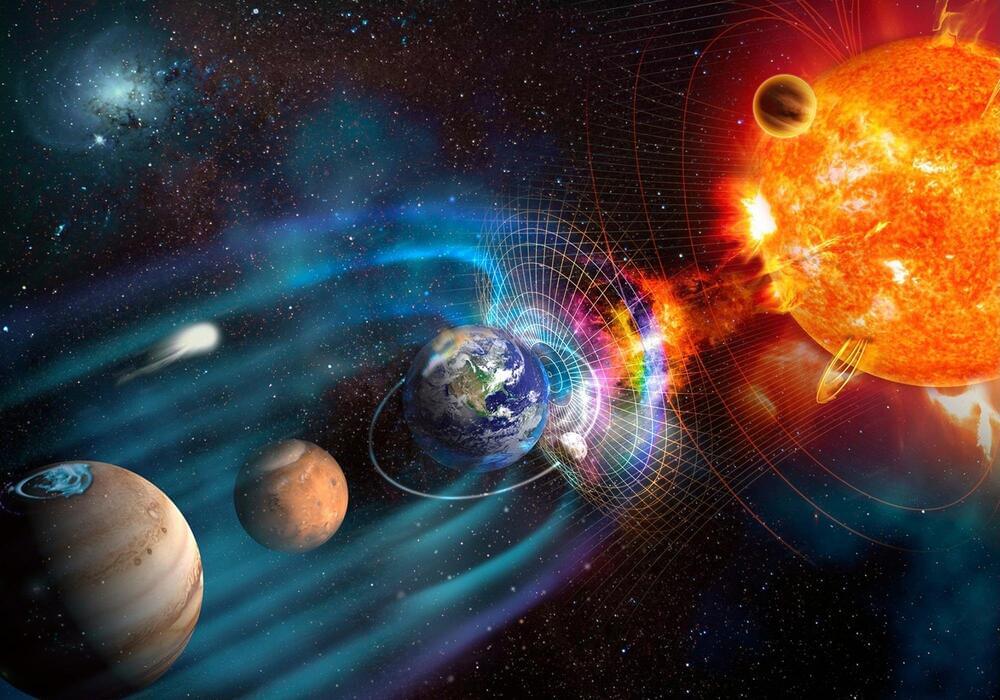The findings of a new study by the University of Liverpool provides further evidence of an approximately 200 million-year long cycle in the strength of the Earth’s magnetic field.
Researchers performed thermal and microwave (a technique which is unique to the University of Liverpool) paleomagnetic analysis on rock samples from ancient lava flows in Eastern Scotland to measure the strength of the geomagnetic field during key time periods with almost no pre-existing, reliable data. The study also analysed the reliability of all of the measurements from samples from 200 to 500 million years ago, collected over the last ~80 years.
They found that between 332 and 416 million years ago, the strength of the geomagnetic field preserved in these rocks was less than quarter of what it is today, and similar to a previously identified period of low magnetic field strength that started around 120 million years ago. The researchers have coined this period “the Mid-Palaeozoic Dipole low (MPDL).”









Comments are closed.